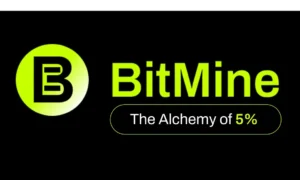Joseph Lubin Says Ethereum Still Needs VCs Despite Rising Concerns

TLDR
Joseph Lubin stated that Ethereum still depends on venture capital funding for its growth and development.
He said Paradigm’s main goal is to extract value but also to support decentralization in the ecosystem.
Lubin explained that there is no reason for concern about VC influence on Ethereum’s direction.
He described venture capital as a bridge that connects global financial capital to Ethereum’s ecosystem.
Two key Ethereum researchers joined Paradigm-backed Tempo, raising industry concerns about centralization.
Ethereum remains dependent on venture capital (VC) funding to support growth, despite ongoing concerns around investor influence, according to Joseph Lubin. The Ethereum co-founder and Consensys founder defended VC participation following recent debates around Paradigm’s growing presence in the ecosystem. His comments came amid the departure of two leading Ethereum researchers to Paradigm-backed Tempo blockchain.
Lubin Defends VC Role in Ethereum’s Development
Joseph Lubin emphasized that Ethereum needs VC support for now to attract mainstream capital and ensure continued progress. He acknowledged Paradigm’s primary aim is to “suck as much value as possible” from Ethereum and other networks. However, he added that their secondary goal includes helping decentralize the ecosystem.
Lubin dismissed fears of centralization, stating, “There is no reason for concern” in a post on X. He noted that VC funding still plays a major role in developing Ethereum’s infrastructure and expansion. Despite public worries, he asserted Ethereum will remain on its path toward secure and decentralized systems.
He explained that VCs serve as a bridge for global capital entering Ethereum and the broader blockchain space. As traditional finance takes interest, this inflow helps Ethereum scale while staying competitive. Lubin said better on-chain investment alternatives will soon emerge to challenge VCs directly.
Paradigm’s Growing Influence Raises Industry Concerns
The community expressed concern after two high-profile Ethereum researchers moved to Paradigm-backed Tempo. Dankrad Feist, a veteran Ethereum Foundation developer, recently joined Tempo, a payments-focused blockchain supported by Stripe and Paradigm. Former Consensys researcher Mallesh Pai also joined Tempo after earlier advising Paradigm.
Their exits sparked fresh debate about whether Ethereum’s development risks being steered by VC interests. Critics argue that firms like Paradigm may shape development priorities to benefit their own ventures. Nonetheless, Lubin framed these departures as signs of Ethereum’s growing appeal to major firms.
He said, “The gold rush of corpo-chains is validating for the traditional economy and signals our mainstreaming.” This comment suggested Ethereum’s ecosystem is maturing and drawing serious institutional attention. Lubin maintained that Ethereum’s decentralization remains intact despite individual career moves.
VC Support Still Crucial as On-Chain Alternatives Mature
Lubin reaffirmed that Ethereum continues to need VC involvement until better alternatives arrive. He said that on-chain funding platforms with fair tokenomics will eventually replace traditional VC models. When that happens, VCs must adapt to these new systems to stay competitive.
Currently, Ethereum benefits from Paradigm’s involvement, despite its controversial Tempo project. Unlike Ethereum, Tempo plans a controlled validator set, which critics view as centralized. Paradigm launched the project in September, aiming to improve infrastructure for global payments.













